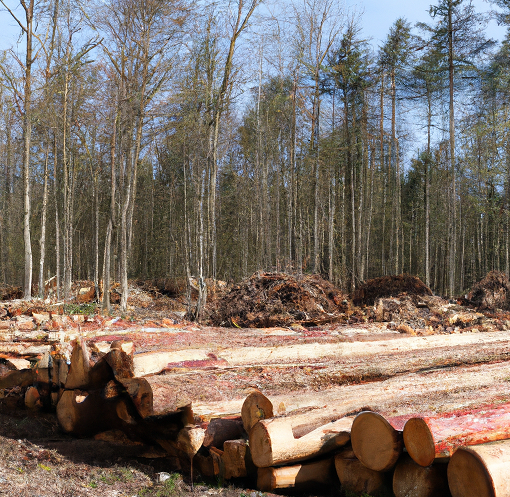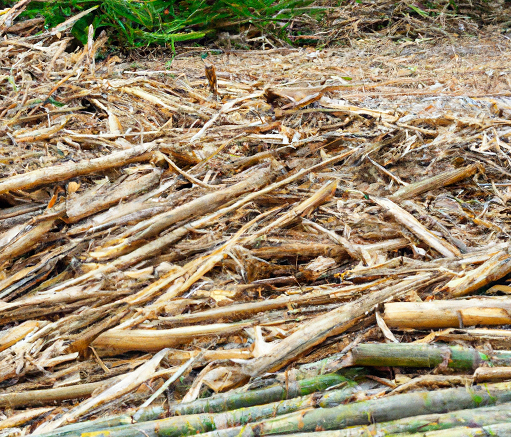Deforestation is a major environmental issue that contributes to climate change, soil erosion, loss of biodiversity and other negative impacts. It is essential to find alternatives to wood to reduce the demand for wood and prevent further deforestation. With the growing demand for wood products, it is becoming increasingly important to find alternatives that are not only environmentally friendly, but also economically and socially sustainable.
Alternative Materials for Wood
Bamboo is a fast-growing, renewable resource that can be used as a substitute for wood in many applications. Bamboo is strong, durable, and sustainable. It is also lightweight, making it ideal for construction and other uses. It grows abundantly in Asian countries like India and China.
Recycled plastic can be used as a substitute for wood in many applications. Recycled plastic is durable, weather-resistant, and requires low-maintenance. It is also easy to process and widely available. But, recycled plastic can be expensive, and it is not as sustainable as other materials.
Agricultural waste, such as straw, can be used as a substitute for wood in many applications. Agricultural waste is abundant, renewable, and sustainable. It is also easy to process and requires low-maintenance. Agricultural waste is not as strong as some other materials but it is widely available in India. It can also help to tackle stubble burning issue in northern states of India.
Wood-plastic composites can be used as a substitute for wood in many applications. Wood-plastic composites are strong, durable, and requires very low-maintenance. They are also easy to process and widely available. Wood-plastic composites can be expensive, and they are not as sustainable as bamboo materials.
By using alternative materials, we can reduce the demand for wood and help to prevent further deforestation. Alternative materials are often more sustainable than wood, as they are renewable and/or made from recycled materials.
Alternative materials may be cheaper than wood, as they are often easier to process and require less maintenance. Also, they may be stronger, more durable, and more weather-resistant than wood, making them ideal for many applications.
Challenges to Implementing Alternative Materials for wood
- Public Awareness: Many people are not aware of the alternative materials available, or of the benefits they offer.
- Supply Chain Management: Alternative materials may not be as widely available as wood, making it difficult to find the materials needed to meet demand.
- Technical Limitations: Alternative materials may not be suitable for all applications, and they may require special processing techniques.
- Market Resistance: Some consumers may be hesitant to switch to alternative materials, due to their unfamiliarity or perceived lower quality.



